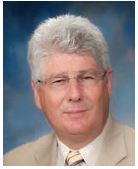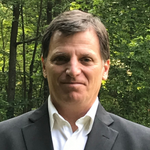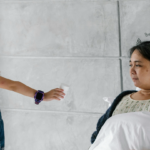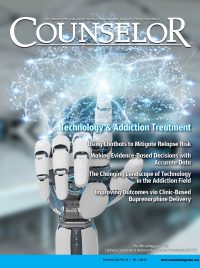Share
In our previous article we reviewed the potential roles of social service organizations (SSOs) in addressing substance use issues among clients served. We also discussed Pressley Ridge’s programs for clients and families, and the challenges faced in addressing substance issues. This second and last article discusses initiatives within Pressley Ridge to enhance staff education, competence, and comfort level in addressing substance use issues as well as lessons learned from this work.
Initiating Changes within Pressley Ridge
The Pressley Ridge president and CEO added “enhancing substance use expertise” as a strategic goal for the organization. Multiple surveys and discussions with staff were used to identify existing areas of staff knowledge and expertise as well as areas to focus on in workshops, webinars, and other educational initiatives. We initially provided a two-day summit for clinical leadership in collaboration with addiction experts at the University of Pittsburgh addiction medicine services and the behavioral health integration division of the University of Pittsburgh Medical Center (UPMC) health plan. This led to increasing our focus on clients and families affected by substance use disorders (SUDs) and receiving services in our programs.
One of the authors of this article and the senior director of clinical services (Alex Cameron) took a lead role in organizing this and other summits, facilitating ongoing education training for staff, organizing and disseminating information to staff and clients, and collaborating with community organizations. Surveys and input from staff identified training needs of staff in specific programs.
Education on Substance-Related Issues
We participate in a learning collaborative with the UPMC to train staff and implement screening, brief intervention, and referral to treatment (SBIRT) with select programs. This enables staff to use the same screening tools with clients, and to use interventions such as a “warm hand-off” to a licensed addiction program for clients in need of more extensive SUD services. We plan to expand the number of staff who can train other staff in SBIRT. We believe that helping clients get treatment for SUDs reduces the risk of out-of-home placement for children in families we serve. Our staff remain involved with these clients during and after their SUD treatment.
Pressley Ridge is also part of motivational interviewing (MI) and co-occurring disorders (CODs) learning collaboratives with two major academic medical centers. Although many staff had been trained in MI, this initiative has led to several senior staff providing MI training, supervision, and consultation within different Pressley Ridge programs. Our goal is for all programs to have staff attend an introductory MI workshop and participate in ongoing supervision and case consultation on utilizing MI with clients and families. The COD collaborative helps staff integrate focus on recovery from both SUDs and mental disorders since clients in our programs often experience mental health problems with their substance use.
Pressley Ridge also incorporated focus on substance use issues in two grants aimed at helping clients prepare for and find employment. This approach integrates work issues with SUD recovery issues and involves peers in recovery providing some of the services.
Additionally, we cosponsor some conferences with other providers and offer workshops and webinars to staff. Many of our educational programs are recorded and available on our shared drive. We understand the importance of providing ongoing education opportunities for our staff.
Consultations and Case Discussions
Another author of this article (Dennis Daley) is available to staff for consultation on cases, educational programs, service expansion, and/or grant applications. Staff use the American Society of Addiction Medicine (ASAM) framework to conceptualize cases presented. Group consultations are often used so staff can learn from each other. When substance use problems require an immediate response, we arrange a consultation team to discuss the situation and how best to support clients, their families, and their teams.
Communication to Staff and Dissemination of Information
We use multiple strategies to communicate to staff about our strategic goal related to SUDs, services, learning collaboratives, ongoing educational opportunities, resources available for staff or client education, and access to program or case consultations. These include ongoing e-mail and verbal communications by our president/CEO, COO, senior director of clinical services, and regional directors and program supervisors.
The following are ways we disseminate information to staff and clients on topics related to substance use and SUDs:
- A shared drive with access to videos, audio, and written materials—the SUD folder is organized into a dozen topics, making it easy for staff to find a SUD topic of interest
- Archived webinars and educational programs with supporting materials (e.g., PowerPoint summaries)
- Up-to-date information on substance use, SUDs, and reports from SAMHSA, NIDA, and/or other organizations
- Treatment manuals and articles on substance use and co-occurring disorders, Treatment Improvement Protocols, and SAMHSA Pocket Guides on opioid or alcohol addiction
- Materials related to SBIRT, MI, and family treatment of SUDs
- Federal, state, local, and treatment resources such as websites, written materials, and telephone numbers of help lines or SUD treatment programs
- Family education, treatment, and recovery resources to help loved ones deal with SUDs and help heal from the effects of loved ones’ SUDs on themselves
- Information on mutual-aid programs (Twelve Step and others) and how to access them
- Interactive recovery guides on substance use, psychiatric, and co-occurring disorders
- Regular e-mails with brief summaries of SUD topics that can be read in a minute or two
Substance Use Policy Changes
One new policy focused on the need to screen clients for substance use and create a linkage between mental-health- and substance-related challenges since many clients have CODs. Yet another policy supports the use of Narcan (i.e., naloxone HCI) as part of an overdose prevention plan. Using a needle-free dose as a protective factor is a step toward supporting statewide initiatives to broaden the access and use of these life-saving practices.
Lessons Learned
As we began meeting with staff, we realized that foundational shifts in staff attitude needed to occur in addition to acquiring knowledge or skills. There is a need for pacing the implementation of clinical initiatives so that programs are not asked to implement too many changes too quickly. Access to and collaboration with two major academic medical centers provided our organization with a unique opportunity to learn from experts and increase our ability to address SUDs and CODs. Some of the lessons we learned thus far with our SUD work include the following:
- Knowledge is retained better when staff discuss clinical issues or learnings in supervision or consultation. Program supervisors are positioned to sustain training in regular supervision and case discussions.
- Many staff prefer podcasts or webinars that can be viewed on their own time and access to information that is brief and easy to read or access. They prefer information in smaller, more digestible segments. Since many staff drive to clients’ homes, they can use travel time to access podcasts.
- Continuous feedback via brief surveys helps us better understand staff training needs and recognize trends in our programs.
- Having local champions in individual programs enables us to reach more staff, enhance their competence, and facilitate changes in the services offered to clients or families.
- Communicating to all programs and staff in a consistent manner is helpful in sharing our strategic goal of enhancing our ability to address substance issues among clients and families. We continually stress the importance of addressing the impact of substance problems on families and children since we are a child- and family-focused organization.
- As a result of changes in staff work habits due to the COVID-19 pandemic, we have become more proficient in using online meeting platforms for meetings, trainings, supervision, and consultations.
- We believe in MI not just as a communication style with clients, but as an overall approach to training, supervision, and staff interaction. When possible, MI is woven into early training and its use is encouraged in every format. Having a strong base in MI allows for the better use of models like SBIRT. We found that when groups did not have a basic foundation of MI skills, it was necessary to go back and conduct introductory training to increase SBIRT’s effectiveness.
- We use multiple strategies to disseminate information to staff, especially about resources for clients or families.
- Clinical leaders are often placed in this position due to having solid clinical skills and experience. We learned that partnering with people in the agency who have expertise in project management is helpful. This partnership not only helps in planning for potential barriers to implementation, but also in creating a plan to sustain initiatives.
Our experience shows that a large SSO such as Pressley Ridge can increase the focus on substance issues in many ways. Administrative and clinical leadership support are key issues in making this feasible given the many demands of a SSO. Including the need to address substance use issues as a strategic goal for our organization ensures that attention continues to be directed at ways to enhance services and increase staff knowledge, skills, and comfort level.

Dennis Daley, PhD
Dennis C. Daley, PhD, served many roles at the University of Pittsburgh School of Medicine. He is the author of many articles, treatment manuals, books, and guides for families and children affected by addiction. He helped facilitate B2H programs at two hospitals.

Alexander Cameron, MS, LPC
Alexander Cameron, MS, LPC, has over thirty years of service with Pressley Ridge and currently is the senior director of clinical services. His clinical interests are traumatology, family engagement, motivational interviewing, and positive psychology.

Mark LeVan, MA, LPC, CCTP
Mark LeVan, MA, LPC, CCTP, is currently a regional clinical director at Pressley Ridge. He is a licensed professional counselor in Pennsylvania and has worked for twenty years with adults, children, and families. LeVan is a doctoral student in Indiana University of Pennsylvania’s counselor education and supervision program and a member of the Motivational Interviewing Network of Trainers.














 Counselor Magazine is the official publication of the California Association of Addiction Programs and Professionals (CCAPP). Counselor offers online continuing education, article archives, subscription deals, and article submission guidelines. It has been serving the addiction field for more than thirty years.
Counselor Magazine is the official publication of the California Association of Addiction Programs and Professionals (CCAPP). Counselor offers online continuing education, article archives, subscription deals, and article submission guidelines. It has been serving the addiction field for more than thirty years.